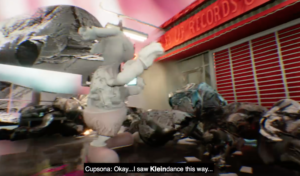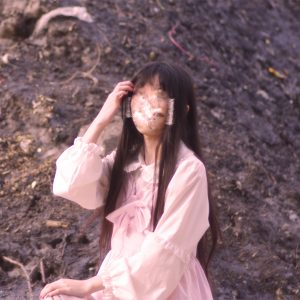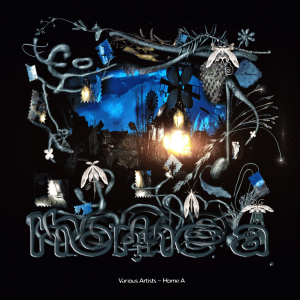Steven Warwick is playing Madonna’s 2002 James Bond theme song ‘Die Another Day‘ in a small and smoke-filled Ormside Projects in London. The night is stretching out into the wee hours and Mexico City’s Tayhana is yet to perform. Madonna’s early days Auto-Tune is singing “I’m gonna break the cycle,/ I’m gonna shake up the system” on the 2002 pop electroclash classic and the lyrics, weirdly, resonate. Festival Hyperlocal is a music, art and performance event that was first put on by organiser Bruno Gomez in a Buenos Aires warehouse in 2013, and has been going ever since. The all-day festival, alongside smaller one-off events, happens in both London and the Argentinian capital annually, applying a punk and DIY approach to a far broader and more eclectic program than that label would imply. Warwick (fka Heatsick)’s wildly camp DJ set of 00s gay club classics — like Kylie Minogue’s ‘Come into My World‘, The Ones’ ‘Absolutely Flawless‘ and ‘La Macarena‘ — might not be so representative of the sound that Festival Hyperlocal is going for but it is a good indication of its policy of inclusivity and creative freedom.
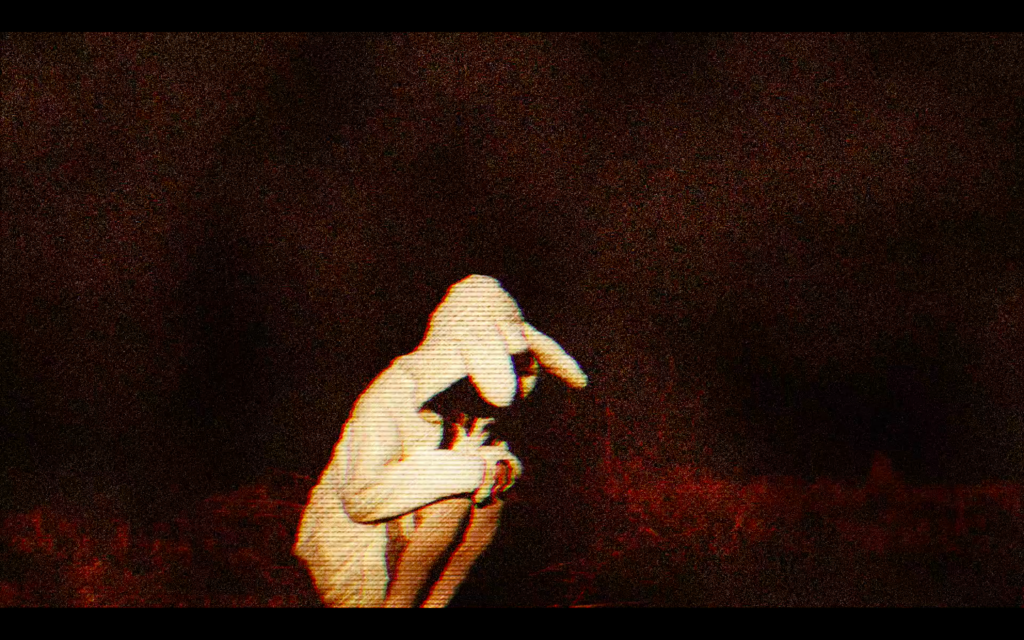
Up until recently taking place at Cafe OTO and other small venues nearby, this October 6 event is the first time the UK edition of the festival has happened south of the River, at DIY Space for London and Ormside Projects. It starts at midday with an online-only stream of spoken word on Comet Radio, followed by a live and live-streamed reading by artist and writer Aurelia Guo and early performance by No Home. There’s food at the door and people gradually trickle in to the main stage where DJ Nesa is set up atop a Club Mate crate, his wonky mixes and mashups drawing on a breadth of artists and styles — from dancehall and hip hop to techno and ambient. He finishes his set and leaves the makeshift mixing desk with a track featuring a looping cut up sample saying “motherfuckers” still playing. As DJ Nesa rolls away his cables, Yikii appears as a projection on the wall. A girl dressed as a bunny rabbit frolics through some woods to the creepy femme vocals, synth atmospherics and the occasional piano and orchestral elements that made the Chinese producer’s recent 溫柔惡夢【Gentle Nightmare 】 EP so enjoyable. Live and online, it’s mesmerising.
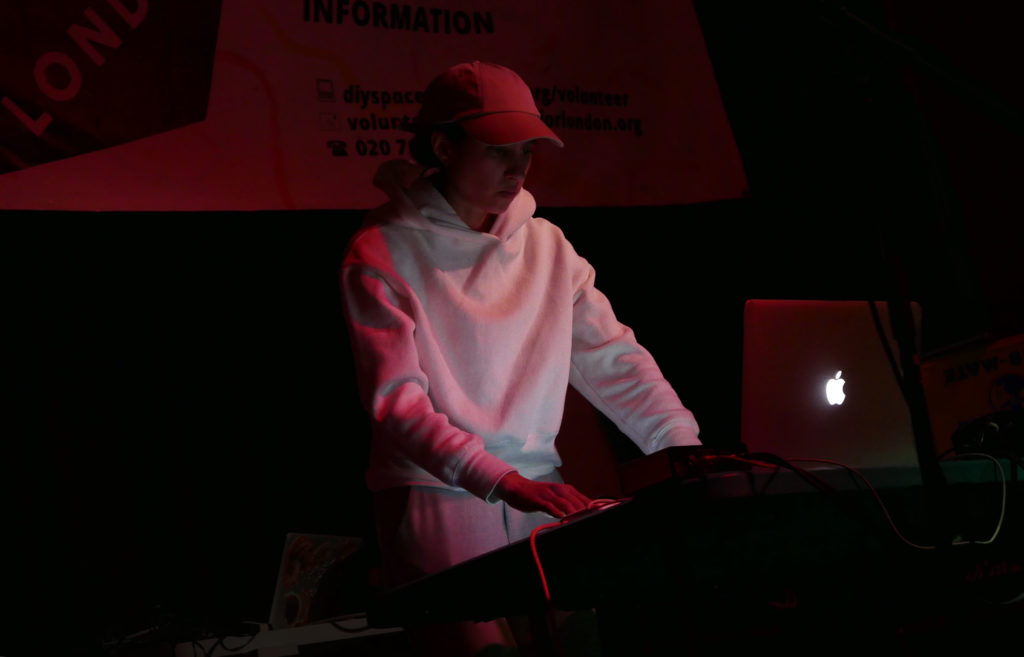
DJ Bli Bli of Argentinian juke label ABYSS plays the kind of music that’s meant for a bigger crowd than his relatively unknown status in London would yield. Even still, it vacillates fluidly through violin samples, heavy techno and a metallic tom that makes the resonant concrete of DIY Space reverberate. Another Buenos Aires-based artist Aylu follows, wearing white and grey matching athleisure gear to present a collision of crackling sound objects that bump up and against each other from a knotty hardware set up of samplers and sequencers. Meanwhile, late addition hmurd fills in for a no show with an uncomfortable and alluring set of crunchy, isolated elements of noise and mangled dance samples. It’s an unstable, intense and unrelenting dissection of music made for the dance floor, which by the end of it has no place there at all. Taking the notion of ‘deconstructed club music’ to its logical conclusion, the London-based producer reduces the sonic elements of these styles to a microscopic degree, reconstructing them into something so abstract it could only find an audience in the avant-garde.
Sadaf is another highlight. The New York-based performer is lit up by green and pink lights on the dimmed stage, as she sings partially improvised lyrics describing a non-existent script amid shrill violin interjections and effects pedals. A psychotic combination of monotone vocals, choral harmonies and atonal registers give a sense of a sonic exorcism that thrills.
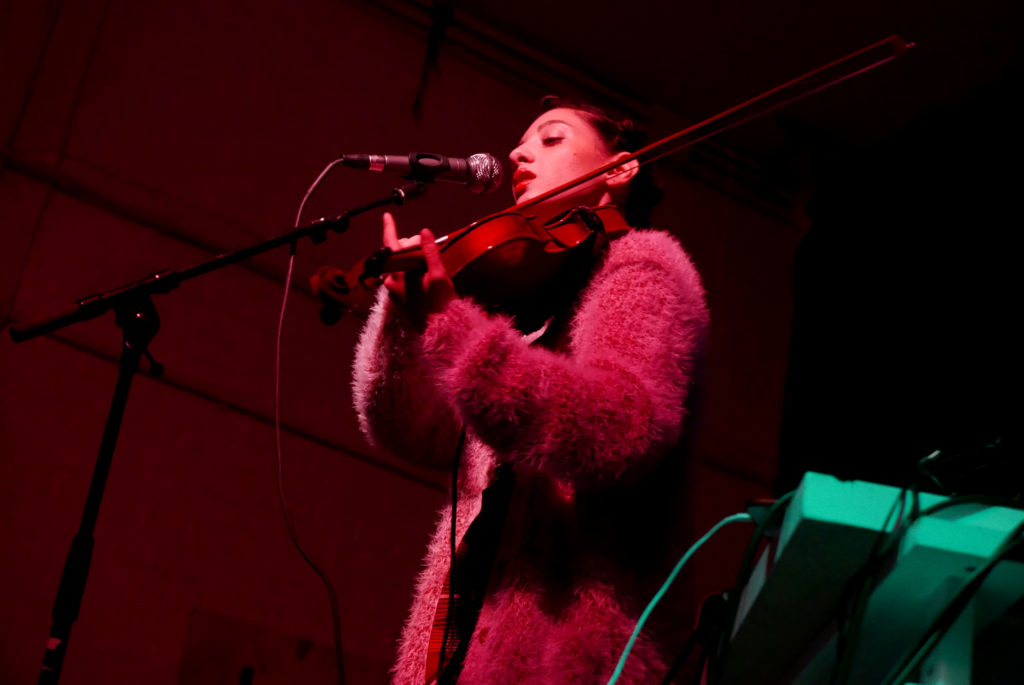
Before long the crowd is gathered in the second venue, Ormside Projects up the same road. A square room with a makeshift bar and huge speakers fills up as Clubcouture‘s Curtly Thomas DJs a clash of disparate selections, from hard trance and dub, to a steel drum cover of 70s pop ballad “Love Story”. Another London producer, Klein‘s side project and “ultimate girl group” Portia Lewis answers with a spiralling and noisy set of deconstructed popular culture references and fragmented beats that dip in and out of monstrously pitched vocal samples. It follows a similarly harsh and playful aesthetic as Klein’s usual solo fair, while being an ideal segue to Steven Warwick’s counterculture-jamming extravagance in turn of the millennium synth pop mashups alongside tracks by M.I.A. and DJ Kass.
This is one of many indications of the contemporary underground’s charged relationship with the mainstream, which is one that by this point thrives on a mutually dependent exchange with incongruent returns. That’s why Festival Hyperlocal is so important. It lives up to its name taken from the term for digital networks that are oriented towards communicating and targeting well-defined communities with a focus on its population’s interests. In a world that’s being suffocated by corporatisation and privatisation, consolidating these specific, alternative channels for expression is more important than ever.**
